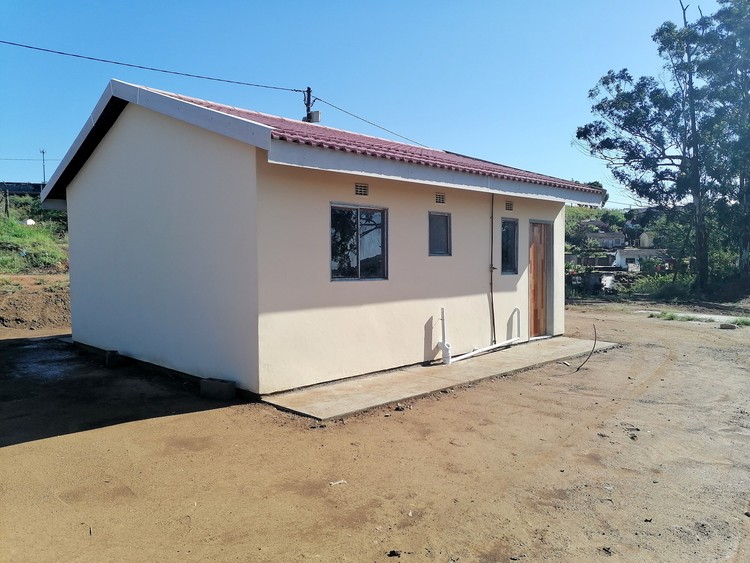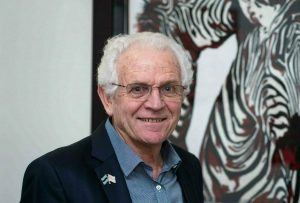By Tsoanelo Sefoloko, GroundUp
Almost four years after a housing project was launched in Inanda, eThekwini, only a single low-cost house has been built.
The project is known as the Namibia Stop 8 housing project. Namibia Stop 8 is an informal settlement located in this area.
According to residents, the construction company was on site from 2019 to 2020, but builders stopped work during the Covid-19 pandemic.
According to Lindiwe Khuzwayo, spokeswoman for the eThekwini Municipality, the development (which is located about 30 km from Durban’s city centre) consists of 500 sites that receive municipal services, as well as 343 new housing units. More than R83 million has apparently been spent on the project so far – including roadwork, stormwater drains, sewage systems, platforms and foundations, water reticulation and other structures.
Marlaine Nair, a DA MP and the party’s spokesperson on human settlements, revealed at a council meeting on 31 May that R43 million is needed to complete the project.

However, she says no more money should be allocated to it without a “comprehensive report detailing the project’s progress, challenges and any possible irregularities”.
During a visit last week, there was only one road that was tarred over a distance of 500 metres. The rest was just gravel. Furthermore, the stormwater system was incomplete while only a few sewer ditches were dug.
A total of 13 houses have been built up to foundation level – with a single RDP house whose construction work has been completed.

Zamani Khuzwayo, DA speaker in eThekwini, says the project is now 51% complete and that the new deadline for completion is December 2024. Khuzwayo blames delays on bureaucracy, difficulties in obtaining necessary approvals, the relocation of families to temporary housing units, the Covid-19 pandemic, the July 2021 riots and the large-scale flooding in KwaZulu-Natal.
Families resettled in November 2019 say they were initially told the project would last 18 months. Three and a half years later, however, they are still sitting in temporary camps.
According to Thami Ngidi, a community leader, residents were skeptical from the start. He says out of 500 families, only 311 agreed to be moved.
“Unfortunately, the officials managed to convince some of us. We finally agreed to be moved.” The informal settlement, Namibia Stop 8, came into being in 1960.
Residents who refused to be resettled live in houses made of recycled bricks and corrugated iron sheets. Some residents built pit latrines for themselves. However, hundreds of families who previously refused to move will now have to be relocated to complete the project. Buzani Mkhize, a resident, says: “I told them I want to be closer when they build my house, so that I move in immediately when they finish. We know houses are being (illegally) sold in other areas.”

Tsepo Magubane, another resident, says that when his parents were relocated, his backyard room was demolished.
“I refused to live with my parents and relatives in a one-room house. Our house is in the front row. We were told it would be done within six months, but it never happened.”
Conditions at the temporary accommodation are very bad at this stage. Each family has to share a single room and there is a lack of toilets.
People have to carry five and ten liter buckets to toilets to flush them and water for non-residents is currently delivered by trucks. However, residents say the water trucks are sometimes absent for weeks. Mayor Mxolisi Kaunda says the municipality is working on repairs to damaged pumps and has apologized for the water situation.








